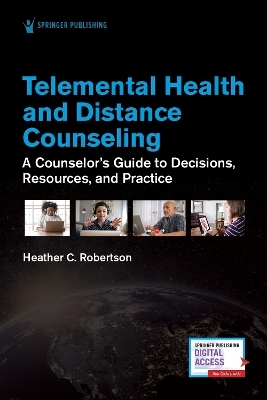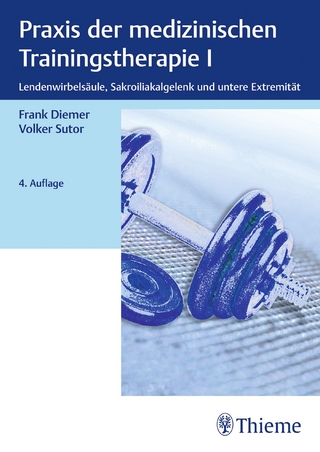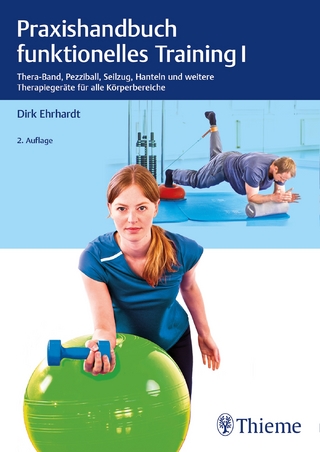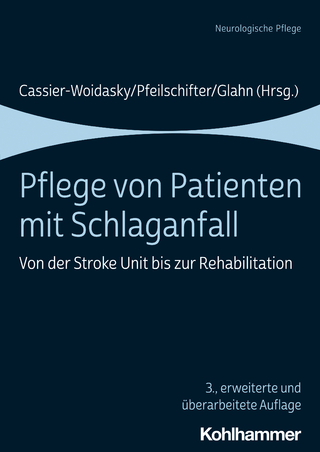
Telemental Health and Distance Counseling
Springer Publishing Co Inc (Verlag)
978-0-8261-7994-4 (ISBN)
This timely text provides foundational knowledge and skills pertaining to ethical and evidence-based practice for mental health providers engaging in or considering using distance modalities to treat clients. Targeting day-to-day application, the book explains the core functions of Telemental Health counseling (TMH) and its use across a broad spectrum of mental health modalities and settings. Using the framework of the ACA divisions, ASCA, and CACREP core areas to examine TMH, the text provides instructions to develop skills that readers can apply directly to their own counseling interactions. Providing a wealth of information based on empirical and impartial views, the book helps readers examine the benefits and risks of distance counseling in various settings. It encompasses the history of TMH, ethical codes, legal guidelines, and recent research.Case studies and opportunities for self-reflection enable readers to envision distance counseling in real-world contexts, ask critical questions, and form conclusions about its utility in their practice. Of particular value is the "Voices from the Field" feature, where practitioners from different settings describe using distance counseling. The "Challenges and Opportunities" features discuss the pros and cons of telemental health practice. The book is written through the lens of professional counseling which makes it an ideal companion to Counselor Education program courses in Counseling Skills, Pre-Practicum, Advanced Theory, or elective coursework pertaining to distance counseling and telemental health.
The purchase of the book includes digital access for use on most mobile devices or computers.
Key Features:
Includes critical content pertaining to the COVID-19 crisis
Expands the view of distance counseling to include such varied professionals as mental health, school, family, couple, rehabilitation, addiction specialists, etc.
Presents abundant case studies to provide context and practical application
Addresses the positive and negative aspects of practicing distance counseling
Includes ethical issues in each chapter pertaining to designated core areas or specialty
Presents "Questions of Practice" to foster critical thinking regarding the use of TMH in specific roles or functions,
Offers "Voices from the Field" with real-world examples focusing on practicing TMH within the designated core areas or specialties
Emphasizes ethical, practical, and logistical TMH practice in all chapters
Written through the lens of a professional counselor who is also a board-certified telemental health provider
Includes digital access for use on most mobile devices or computers.
Heather C. Robertson, PhD, LMHC, LPC, CASAC, CRC, NCC, ACS, BC-TMH is an Associate Professor of Counselor Education at St. John's University located in Jamaica, New York. She is the program coordinator for the Clinical Mental Health Counseling Program in the School of Education. She is a Licensed Professional Counselor (LPC, CT), Licensed Mental Health Counselor (LMHC, NY), Nationally Certified Counselor (NCC), Certified Rehabilitation Counselor (CRC), Credentialed Alcoholism and Substance Abuse Counselor (CASAC, NY), Approved Clinical Supervisor (ACS), Global Career Development Facilitator (GCDF) and Board Certified Telemental Health Provider (BC-TMH).As BC-TMH and a former Distance Credentialed Counselor (DCC), Dr. Robertson's areas of research include telemental health counselor competence and distance counseling practices. She was awarded a 2018 North Atlantic Region Association of Counselor Education and Supervision research grant for her research entitled "Practice and instruction of distance counseling: Educator, supervisor, and counselor perspectives." Her research has resulted in national and regional conference presentations on the topic of telemental health, specifically examining the preparation of professional counselors, counseling supervisors, and counselor educators. Dr. Robertson's research and advocacy efforts include Telemental Health Counselor Preparation, Substance Abuse, Military and Veterans, Career Transition, and reducing the stigma of Mental Illness and Addiction. She earned a Ph.D. in Counselor Education & Supervision from Virginia Tech, an M.S. in Counseling & Guidance from Texas A & M University at Corpus Christi, and a Bachelor's degree in Policy Studies from Syracuse University. Dr. Robertson has served as the past-president of the American Counseling Association of New York (ACA-NY) and of the New York State Career Development Association.
Chapter 1. History, Efficacy, and Demand for Telemental Health Counseling
Introduction
History of Telemedicine
Demand for Distance Counseling and Telemental Health
Efficacy of Distance Counseling and Telemental Health
Distance Counseling across Specializations
Limitations
Education and Training Dilemma
Conclusion
Chapter 2. Overview of Distance Counseling and Telemental Health
Introduction
Definitions and Terminology
Settings
Platforms
Modalities
Certifications and Professional Organizations
CACREP Standards and Technology
Conclusion
Chapter 3. Ethics and Professionalism in Telemental Health
Introduction
Counseling Ethical Codes
Licensure and Credentialing
Technology
Challenges and Opportunities
Case Study: Ethics and Professionalism
Critical Questions in Deciding to Practice
Voices from the Field
Conclusion
Chapter 4. Psychosocial and Multicultural Development
Introduction
Impact of Technology on Human Development
Technology and Communication
Cultural Implications
Challenges and Opportunities
Case Study: Psychological Development and Multicultural Development
Critical Questions in Deciding to Practice
Voices from the Field - Human Development
Voices from the Field - Multicultural Development
Conclusion
Chapter 5. Individual Counseling and Telemental Health
Introduction
Logistics of the Individual Practice
Nonverbal Communication and Distance Deficits
Identifying Emotions
Challenges and Opportunities
Case Study: Individual Counseling
Critical Questions in Deciding to Practice
Voices from the Field
Conclusion
Chapter 6. Group Counseling via Telemental Health
Introduction
Distance Groups
Open and Closed Groups Online
Online Group Facilitation Skills
Challenges and Opportunities
Case Study: Online Group Counseling
Critical Questions in Deciding to Practice
Voices from the Field
Conclusion
Chapter 7. Career Development and Telemental Health
Introduction
Growth of Career Services Online
Defining Distance Career Services
Providing Distance Career Development
Challenges and Opportunities
Case Study: Career Developments
Critical Questions in Deciding to Practice
Voices from the Field
Conclusoin
Chapter 8. Assessment and Research using Telemental Health
Introduction
Telemental Health Assessment
Ethics of Online Research
Research and Assessment Data
Challenges and Opportunities
Case Study: Assessment
Critical Questions in Deciding to Practice
Voices from the Field
Conclusion
Chapter 9. Specialized Areas of Practice - Children, Adolescents, and College Students via Telemental Health
Introduction
School Counseling
Case Study application: School Counseling
Critical Questions in Deciding to Practice
Voices from the Field - School Counseling
Student Affairs Counseling
Case Study: Student Affairs
Critical Questions in Deciding to Practice
Voices from the Field - College Student Counseling
Conclusion
Chapter 10. Specialized Areas of Practice - Clinical Populations and Telemental Health
Introduction
Clinical Mental Health Counseling (CMHC)
Case Study application: CMHC
Critical Questions in Deciding to Practice
Voices from the Field: CMHC
Addictions Counseling
Case Study application: Addictions
Critical Questions in Deciding to Practice
Voices from the Field: Addictions Counseling
Conclusion
Chapter 11. Specialized Areas of Practice - Relationships & Life Transitions via Telemental Health
Introduction
Marriage, Couples, and Family Counseling
Case Study: Marriage, Couples, and Family
Critical Questions in Deciding to Practice
Voices from the Field - Family Counseling
Rehabilitation Counseling/Clinical Rehabilitation Counseling
Case Study application: Rehabilitation Counseling
Critical Questions in Deciding to Practice
Voices from the Field - Vocational Rehabilitation Counseling
Conclusion
Chapter 12. The Future of Distance Counseling and Telemental Health
Introduction
Pursuing Certification in Telemental Health Counseling
Professional Development in Telemental Health Counseling
Beginning a Telemental Health Practice
Counselor Self-Care
Implications for Counselor Educators & Supervisors
Future Trends in Telemental Health Counseling/Distance Counseling
Conclusion
| Erscheinungsdatum | 24.08.2020 |
|---|---|
| Zusatzinfo | 12 illustrations |
| Verlagsort | New York |
| Sprache | englisch |
| Maße | 152 x 229 mm |
| Gewicht | 333 g |
| Themenwelt | Medizin / Pharmazie ► Gesundheitswesen |
| Medizin / Pharmazie ► Physiotherapie / Ergotherapie ► Rehabilitation | |
| Sozialwissenschaften ► Pädagogik ► Berufspädagogik | |
| Sozialwissenschaften ► Pädagogik ► Sozialpädagogik | |
| Sozialwissenschaften ► Soziologie | |
| ISBN-10 | 0-8261-7994-0 / 0826179940 |
| ISBN-13 | 978-0-8261-7994-4 / 9780826179944 |
| Zustand | Neuware |
| Informationen gemäß Produktsicherheitsverordnung (GPSR) | |
| Haben Sie eine Frage zum Produkt? |
aus dem Bereich


